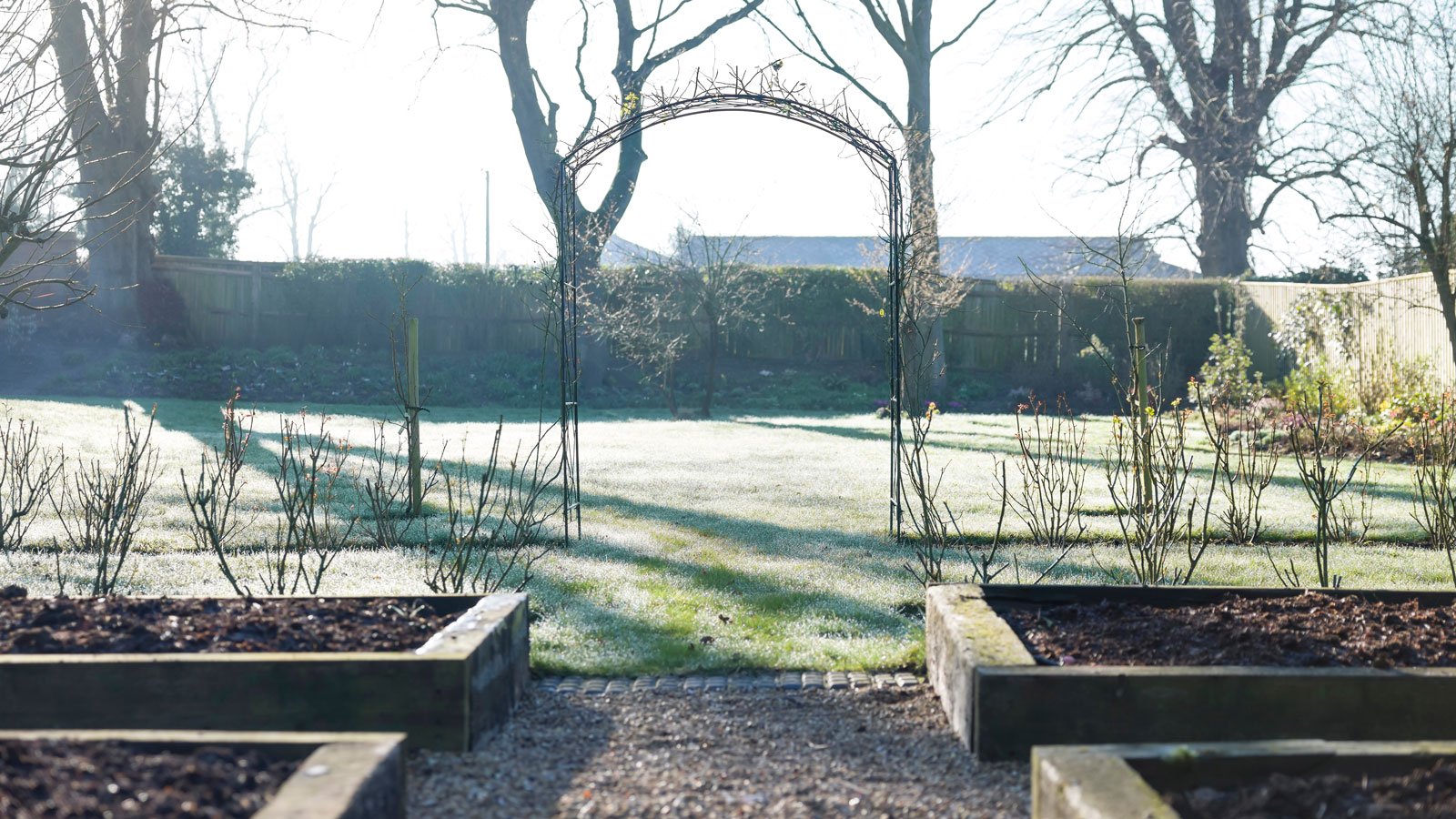Think gardening is just for the warm months of spring and summer? It's time to explore the hidden potential of the winter garden. Contrary to popular belief, those colder days don't mean saying goodbye to gardening gloves.

In fact, embracing gardening during winter can unlock many unexpected benefits, from enhancing wellness to providing fresh harvests.
This article sheds light on why the frosty months might be the hidden gem of the gardening calendar.
1. Boosting Winter Wellness
Gardening in the winter can be an excellent way to boost your overall wellness. Here are two ways that gardening can enhance your winter wellness:
Enhanced Mood Through Cold-Weather Gardening
The winter months can be challenging for many people, and the lack of sunlight and outdoor activity can lead to feelings of depression and anxiety.
However, spending time in nature and engaging in gardening activities can help combat these feelings. And provide a sense of purpose and accomplishment.
Immune System Benefits from Outdoor Activity
Exposure to the diverse microorganisms found in garden soil has been linked to enhanced immune function, helping the body to fend off illnesses more effectively.
Furthermore, the physical activity involved in gardening promotes overall health and well-being.
Additionally, outdoors increases exposure to sunlight, which is crucial for vitamin D synthesis, an essential component for a robust immune response.
2. Unexpected Harvest Opportunities
While the landscape rests under a frosty blanket, various hardy vegetables thrive, delighting gardeners with fresh, nutrient-rich produce even in the coldest months.
From the robust greens of kale to the earthy roots of parsnips, winter presents unique and rewarding harvest opportunities. Explore how embracing the chill can extend your growing season and bring unexpected bounty.
Growing Winter-Hardy Vegetables
Many vegetables are surprisingly winter-hardy and can be grown in your garden during the colder months. The most popular winter vegetables include kale, collard greens, spinach, and Brussels sprouts.
These vegetables are delicious and packed with nutrients that can help boost your immune system during winter.
When growing winter-hardy vegetables, choosing suitable varieties that can withstand cold temperatures is essential.
It would be best to consider using cold frames or other protective structures to help keep your plants warm and shielded from the wind.
Extended Growing Seasons for Certain Crops
Another benefit of winter gardening is the extended growing season that it can provide for specific crops.
For example, garlic is typically planted in the fall and harvested in the summer, but if you plant it in the winter, you can extend the growing season and harvest it earlier in the year.
Similarly, some crops can be planted in the fall and left in the ground over the winter, allowing them to mature and be harvested in the spring.
This can include root vegetables like carrots and parsnips, some types of onions, and even certain varieties of potatoes.
Unearth the secrets of a thriving winter garden in 7 Cold-Weather Vegetables For A Winter Harvest, and learn how to cultivate a bountiful harvest even as the mercury drops!
3. Gardening for Wildlife Support
Winter can be a challenging time for wildlife. As food becomes scarce and temperatures drop, many animals struggle to survive.
However, gardening for wildlife support can help provide habitats and food sources for various creatures. Here are some ways to support wildlife in your garden during winter.
Providing Habitats for Dormant Insects
Many insects hibernate during the winter, and providing habitats can help ensure their survival. You can create a bug hotel by stacking logs, twigs, and other natural materials in a sheltered area of your garden.
This will provide a home for various insects, including beetles, ladybugs, and lacewings. You can also leave piles of leaves or other garden debris in a corner of your garden to provide shelter for insects.
Winter Bird Feeding and Observation
Birds are one of the most visible forms of wildlife in winter; feeding them can be a great way to support them. You can provide bird feeders filled with seeds, nuts, and other foods to attract various birds to your garden.
You can also provide water sources, such as bird baths or shallow dishes, for birds to drink from. By feeding birds, you can observe their behavior and learn more about the different species that visit your garden.
Ready to welcome a symphony of songs and a flutter of color to your yard? Dive into our guide, DIY Bird Baths To Bring Feathered Friends To Your Yard, and discover the joy of crafting your bird baths.
Also, explore our 15 Plants That Provide Food and Shelter to Wildlife in Winter and transform your garden into a winter haven!
4. Preparation for Early Spring Planting
Winter gardening can also help you save money in the long run by preparing your soil for early spring planting. As the winter garden crops start to die off, they can be used as a natural feistier for the earth.
This can help improve soil quality and prepare it for early spring planting. By doing this, you can avoid the cost of buying expensive fertilizers and soil conditioners.
In addition, winter gardening can help you save money on landscaping and lawn care.
Instead of spending time on lawn maintenance, you can use the space to grow your vegetables and fruits. This can help you save money on landscaping and lawn care services.
Final Thoughts
Isn't it fascinating how winter, often overlooked for gardening, can be a season full of surprises and benefits?
From nurturing your winter-hardy veggies to giving your mood and health a welcome boost, it turns out that the colder months offer more gardening perks than one might think.
So why not grab a warm hat, step into the garden, and discover the unique joys and rewards of winter gardening for yourself?
